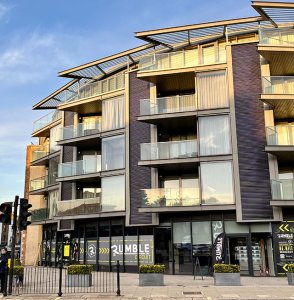Coronavirus: Government introduces further restrictions on recovery of rent by Commercial Landlords
Table of Contents
On the 25th March 2020 the government introduced a moratorium on Landlords forfeiting their Tenants leases, this left Landlord’s whose rent has not been paid on the March quarter date with two main avenues by which to enforce payment of rent, the service of a statutory demand and Commercial rent Arrears Recovery (CRAR). However as of the 27th April 2020, the government has introduced moratoria on both the insolvency and CRAR procedures.
Statutory demands and winding up petitions
Where rent was unpaid a Landlord would normally be able to serve a statutory demand on the Tenant and once that remained unpaid for a period of 21 days they could then issue a winding up petition. The new rules on winding up petitions will apply to all petitions presented to the court after the 27th April and up to the 30th June 2020 (although this may be extended). The court will now vet all petitions and will not issue those where the reason for non-payment appears to be the Coronavirus. Debts that preceded the lockdown should be allowed to proceed but it remains to be seen how this will be applied in practice.
Commercial rent arrears Recovery (CRAR)
The moratorium on the use of CRAR to recover rent is slightly more nuanced and designed to give tenants more time to pay rent so that the CRAR process cannot be instigated until there are at least 90 days (effectively a quarters rent) unpaid.
What remedies remain?
These measures do not suspend the liability to pay rent or for unpaid rent or operate to vary the terms of the lease, but have been introduced in the words of the Business Secretary “to prevent a minority of landlords using aggressive tactics to collect their rents”. Some Landlord’s are however reporting tenants seeking to exploit these measures by refusing to engage in any dialogue.
Landlord’s may still issue proceedings for the recovery of rent at court and, depending on the terms of the deed, draw down on rent deposits if they are holding them, however what is clear is that the government is encouraging Landlord’s and Tenant’s to work together to reach agreement and share the pain. As to the recording of such agreements please see our article Coronavirus: Recording Commercial Rent Concessions.
Blog post written by Guy Osborn from our Commercial Property Team
Contact us today
Call us 020 7485 8811
Email us Send us an email and we’ll get back to you
More from GuyVIEW ALL
- 15.3.2021
Extension on Commercial Property eviction ban
Despite the Government announcing in December 2020 that the extension of the moratorium on enforcement action until the 31st March would...
Read more - 30.1.2021
Making Alterations to a Leasehold Property
What is a Leasehold Property? There are two main types of property in England and Wales, freehold and leasehold property....
Read more - 21.9.2020
Coronavirus and commercial property – Update
On the 16th September the Government extended the current moratorium on the enforcement action that commercial landlords can take against...
Read more - 22.7.2020
Law Commission recommendations have potential to change the...
Today the Law Commission of England and Wales published recommendations with the potential to transform home ownership, including making it...
Read more - 23.6.2020
Commercial Property Covid-19 Code of Practice
As well as extending the current moratoriums on forfeiture of leases based on arrears of rent, extending the arrears of...
Read more - 23.4.2020
Coronavirus: Recording Commercial Rent Concessions
The symbiotic relationship of landlord and tenant is often a fraught one in particular in the already beleaguered retail sector,...
Read more - 30.1.2018
Understanding Your Lease
The security of shelter is a basic human requirement and is even more important if we have a family or...
Read more






